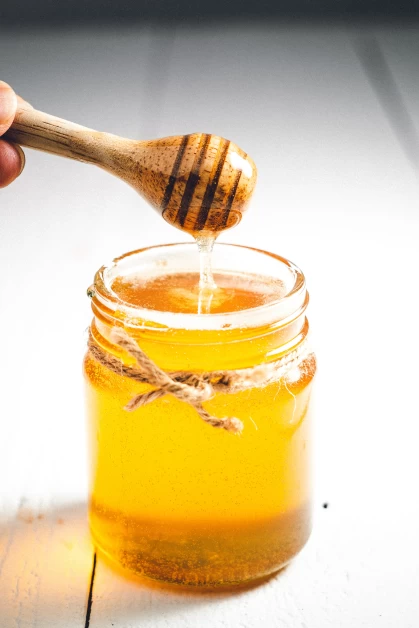Table of Contents
Manuka honey has gained immense popularity in recent years, becoming a trending food item and a must-have in many people’s daily routines. But what sets it apart from regular honey, and is it worth considering for individuals with diabetes? In this article, we will explore everything you need to know about manuka honey, its unique properties, and its potential benefits for individuals with diabetes.
What is Manuka Honey?
Manuka honey is produced by bees that collect nectar from the flowers of the manuka bush, which is native to the southern hemisphere, specifically New Zealand. The manuka bush has a short harvesting period of only two to six weeks, with its flowers being open for just twelve days within that timeframe. Due to this limited harvesting window and the distance manuka honey must travel to reach the United States, it is priced significantly higher than regular supermarket honey. However, despite its cost, manuka honey has become highly sought after for its antibacterial, antiviral, and anti-inflammatory properties.
In terms of its nutritional profile, manuka honey is similar to regular honey. Both varieties provide approximately 60 calories and 16 grams of carbohydrates per tablespoon, with no fat or protein. Many of the health benefits associated with manuka honey are comparable to those of regular honey, particularly raw honey. However, manuka honey tends to be more potent.
The Benefits of Manuka Honey
Honey has been used by humans for thousands of years, with evidence of its use dating back as far as 8,000 years ago. Ancient civilizations utilized honey to fight infections, boost immune health, and promote wound healing. However, manuka honey offers additional benefits beyond those of regular honey.
Manuka honey is rich in active compounds, most notably methylglyoxal (MGO), which is responsible for its potent antibacterial, antiviral, and anti-inflammatory properties. While most honeys contain some MGO, manuka honey has a much higher concentration of this compound, up to 100 times more than conventional honey. This increased concentration intensifies the associated health benefits. Additionally, manuka honey contains phenolic compounds that act as powerful anti-inflammatory agents throughout the body. These compounds are extracted from the manuka bush and become more concentrated during the honey-making process. The combination of high MGO concentration and the presence of anti-inflammatory phenolic compounds contributes to the potential dietary benefits of manuka honey.
A review of multiple studies published in Current Drug Metabolism found manuka honey to be an effective antimicrobial agent and immune modulator. It also demonstrated the honey’s ability to accelerate wound healing and tissue regeneration. Manuka honey has even shown effectiveness against drug-resistant bacteria. These antibacterial properties are particularly beneficial for oral health, as manuka honey helps eliminate harmful bacteria that cause plaque, tooth decay, and gum inflammation.
Manuka honey is also highly effective in soothing and healing sore throats. Its thick consistency coats the throat, providing relief from symptoms, while its antimicrobial properties target the bacteria or virus responsible for the sore throat. A study published in Applied and Environmental Microbiology revealed honey’s ability to combat Streptococcus, the bacteria often responsible for sore throats.
Additionally, manuka honey can be beneficial for gut health. As a prebiotic food, it acts as a source of indigestible fiber that feeds healthy gut bacteria, promoting a well-functioning gut microbiome.
While there are ongoing studies exploring other potential health benefits of manuka honey, such as its ability to suppress cough and induce cancer cell death, more research is needed to establish a causal relationship for these effects.
How to Incorporate Manuka Honey into Your Routine
Considering the impressive benefits of manuka honey, should individuals with diabetes invest in this costly yet beneficial food? If it fits within your budget, manuka honey can be a great addition to a healthy lifestyle. However, if the cost is prohibitive, raw honey provides many similar benefits with less potency. When purchasing manuka honey, it is important to pay attention to certain claims on the label, including MGO, NPA, and UMF levels. MGO indicates the amount of methylglyoxal in the honey, while NPA refers to its non-peroxide activity. UMF stands for Unique Manuka Factor, which represents the overall potency of the honey. Higher numbers indicate a higher concentration of health-boosting compounds.
Manuka honey can be incorporated into your daily routine in the same way as regular honey. It can be stirred into tea or hot water with lemon, drizzled over oatmeal, or consumed directly by the spoonful. However, it is worth noting that manuka honey is high in sugar, so individuals with diabetes or other metabolic concerns should approach its therapeutic use with caution.
In conclusion, manuka honey offers unique properties and potential benefits for individuals with diabetes. While it may come at a higher cost, its antibacterial, antiviral, and anti-inflammatory properties, along with its potential to promote wound healing and oral health, make it a valuable addition to a healthy lifestyle. If you choose to incorporate manuka honey into your routine, be sure to select raw honey whenever possible and pay attention to the MGO, NPA, and UMF levels indicated on the label.


